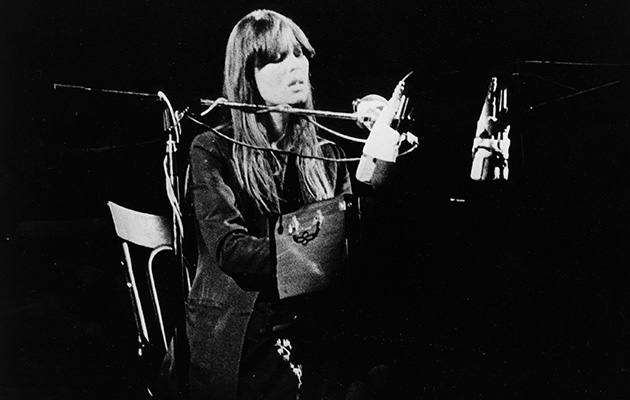An out-of-tune harmonium, a collection of Wordsworth poems, a soupçon of heroin… and four days to make a masterpiece. Twenty-five years after Nico’s death, arranger John Cale, among others, recalls the fraught creation of The Marble Index. “She hated fashion. She hated the idea of being blonde and beautiful. She wanted to do something more substantial…” Words: Allan Jones. Originally published in Uncut’s August 2013 issue (Take 195).
_____________________________________
“There are very few albums that are truly unprecedented,” says John Cale. “But The Marble Index is one of them. It’s unique. No-one had heard anything like it before, which is why some people had a tough time making sense of it. There were no easy reference points. It had nothing in common with anything. It wasn’t folk music, it wasn’t rock and it certainly wasn’t pop. It was something else altogether. It took the listener to a place they’d never been before that was maybe a bit frightening and strange.”
John Cale is talking to Uncut from Los Angeles, where in September 1968 he and Nico had come to record her second solo album, a deal signed with Elektra after the label’s A&R legend, Danny Fields, had arranged an audition for her with Elektra head Jac Holzman. By then both were former members of The Velvet Underground, after separately falling out with Lou Reed.
“I think Nico saw The Marble Index as a chance to be taken seriously, which she craved, and be known for something more than her beauty,” Cale goes on. “She thought that was a flimsy kind of fame. She hated it. That whole scene around The Velvet Underground and Andy Warhol she’d got into, she was really turned off by a lot of it and had walked away from it. She hated fashion. She hated the idea of being blonde and beautiful, and in some ways she hated being a woman, because she figured all her beauty had brought her was grief. The superficiality of it all was something she found an annoyance. She wanted to do something more substantial, her own music.
“She’d done that first solo album, Chelsea Girl, and she’d hated the way it came out. It was very conservatively produced and arranged. She thought it was another example of the superficiality that attached itself to her. She felt used in a way, so there was always an undercurrent of anger in her – ‘Look what the boys are making me do now!’ She had a maternal disdain for the male psyche. She knew she was better than Chelsea Girl and couldn’t understand why that was the kind of album people thought she wanted to make.
“So The Marble Index was an opportunity for her to prove she was a serious artist, not just this kind of blonde bombshell. She’d had a hand in a couple of songs on Chelsea Girl, but where the songs for Marble Index came from I don’t know. That’s a mystery. I knew she’d latched onto Jim Morrison and had started writing poetry, and suddenly she had a harmonium and was writing songs, which is not something that had been encouraged when she was in the VU. Lou wasn’t interested in the band being an instrument for her benefit. His attitude was, ‘The Velvet underground is The Velvet Underground. Don’t mess with it.’ It was one of the reasons she left.
“What these new songs were like, I had no idea. I didn’t even hear them until we were in the studio. She hadn’t even finished writing the album yet. She had this small book with her poetry in and she would sit at the harmonium and work on songs all the time. She didn’t talk about them or what they meant to her. Writing the songs and singing them, that was her responsibility. Explaining them was not her responsibility. So to an extent, I didn’t know quite what I was getting myself into. I just got a call from Danny Fields, who was putting it all together, and then I was on my way to LA.”



